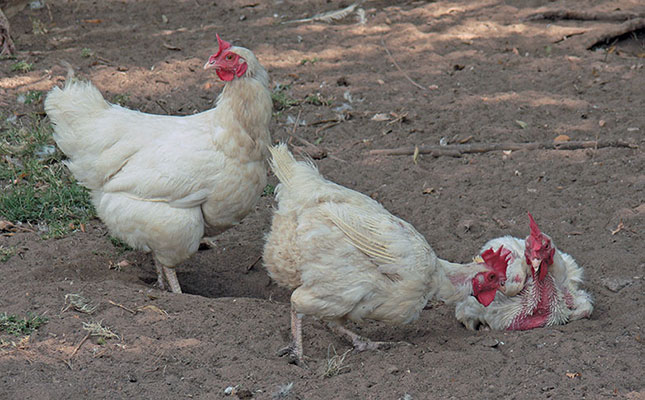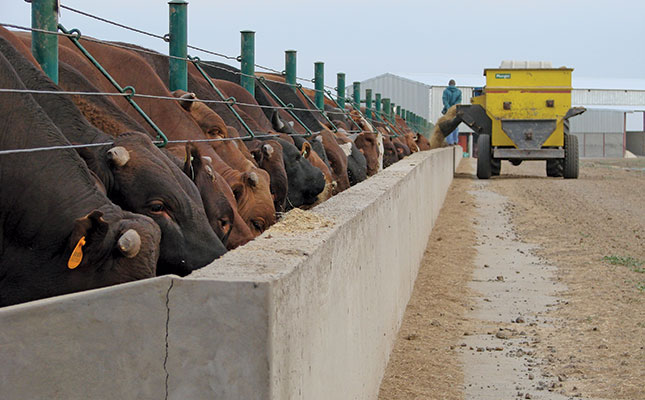
Photo: FW Archive
As mentioned in previous articles, farming free-range chickens offers many advantages over running livestock such as cattle or sheep. Not much space is needed, marketing is easy due to high consumer demand, birds grow rapidly, and far less capital outlay is required, particularly if you can grow drought-hardy crops such as sorghum and herbs for use as feed.
Nonetheless, chicken farming does offer its challenges, and one of these is poultry mites. These can become a major problem and cause severe financial loss if left to proliferate.
Mites can be readily introduced onto your property by infected birds or via shoes. They often hide in cracks and holes in chicken houses and come out at night to suck blood from the birds. This can cause sores that can become infected, anaemia due to blood loss, or even death in extreme cases.
Symptoms
Signs of infestation can include constant pecking at the feathers and belly area. Black or brown/red mites will often be seen on the faces of the chickens. In extreme cases of infection, the birds can lose feathers and develop sores around the eyes and near the beak.
You might also notice streaks of blood on the feathers and on the walls of sleeping areas.
Control
Because poultry mites lay eggs, a single treatment is usually ineffective. The medication will kill the adults, but the eggs will hatch at a later stage and reinfect the chickens.
Merely treating the feathers of birds is also of little help. The only sure solution is to treat all of the roosting or sleeping areas, concentrating especially on small cracks and dark corners where mites typically hide.
Never use a dip or spray that is not listed for use on poultry; these chemicals can kill your chickens. Even a chemical such as Malasol, which can be applied to poultry, may not be be good for you and your chickens if used often to eradicate mites.
I prefer a more natural approach to combating this pest. Try one or more of the following techniques:
- Mix two cups of water, one cup of cooking oil and one tablespoon of dishwashing liquid. Use a spray bottle (bought at any gardening centre) to spray the mixture on all areas of your chicken coop. (Shake the bottle well first.) Spray floors, ceilings, cracks,
walls and other areas three times a week for at least three weeks, and keep spraying regularly thereafter. - Sprinkle wood ash from old fires onto the coop floor from time to time. Chickens roll in this and the ash tends to smother mites on the feathers. Ash is also high in essential trace elements and, if consumed, can be healthy for your chickens.
- Food-grade diatomaceous earth powder (available from health shops) is an effective anti-parasitic remedy. Sprinkle this on coop floors or dust the chickens directly with it.
- Add semi-crushed garlic cloves or garlic powder to the birds’ drinking water; this tends to repel bloodsucking mites. Use one level tablespoon of garlic powder for every 5ℓ of water.
- Make a spray out of the following:
one tablespoon of garlic powder or crushed garlic, one teaspoon of clove powder and/or thyme and/or wormwood added to two cups of lukewarm water. (Clove, thyme or wormwood essential oils can be used instead.) Spray the birds twice weekly with this solution. The thyme, clove and wormwood are not essential, but will make the spray more effective; even using one of these ingredients will help. Regular treatment is the key to controlling mites.
Shane Brody is involved in project management as part of an outreach programme aimed at transferring skills to communal farmers in parts of the former Ciskei and Transkei.










